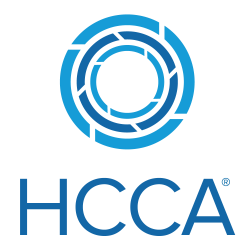In response to the COVID-19 pandemic, researchers from the Massachusetts Institute of Technology (MIT) have published a pair of studies in a COVID-19 special issue of the Harvard Data Science Review, freely available via open access, describing new methods for accelerating drug approvals during pandemics and for providing more accurate measures of the probabilities of success for clinical trials of vaccines and other anti-infective therapies.
“Randomized clinical trials [are] the gold standard for determining the safety and effectiveness of a treatment,” says Andrew Lo, PhD, the study’s senior author and a professor at the MIT Sloan School of Management. “Only when the treatment group shows significant improvement over the control group, will regulators approve the therapy.” He adds, “the current process is designed to protect the public by minimizing the chances of ‘false positives’ (approving ineffective and unsafe therapies), and by and large, it’s been very successful.”
However, there is a trade-off between false positives and false negatives (not approving a safe and effective therapy), and Lo and his collaborators have developed a framework that uses an epidemiological model of COVID-19 to calculate the optimal statistical threshold for approving a drug during a pandemic.
“In the midst of an outbreak, many lives are at stake, so we need to be less concerned about false positives and more concerned about false negatives than during normal times,” says Lo. “In response, we’ve developed an analytic framework that allows regulators to make this trade-off systematically, transparently, and rationally.”
At the core of this new framework is an explicit optimization algorithm designed to minimize the expected loss of life across various scenarios generated by a statistical model of an infectious disease. This algorithm is intended to lead to more drug approvals during outbreaks, not unlike the U.S. Food and Drug Administration’s Emergency Use Authorizations program.
In a companion study authored by Lo and MIT doctoral students, the researchers estimated the probabilities of success of clinical trials for vaccines and other anti-infective therapies using the Citeline® dataset provided by Informa Pharma Intelligence, part of UK-based publishing company, Informa®. This dataset includes 43,414 unique triplets of clinical trial, drug, and disease over the past 20 years, yielding more than 2,500 vaccine programs and more than 6,800 nonvaccine, anti-infective programs, the largest dataset of its kind.
The overall estimated probability of success for industry-sponsored vaccine programs is about 40%, which is the highest among all disease groups (by comparison, the probability of success of cancer trials is, historically, less than 5%), and 16.3% for industry-sponsored nonvaccine, anti-infective programs. Viruses involved in recent outbreaks—Middle East respiratory syndrome (MERS), severe acute respiratory syndrome (SARS), Ebola, and Zika—have had 45 nonvaccine and 35 vaccine development programs initiated over the past two decades, and there have been only two approved vaccines to date (for Ebola).
Edited by Gary Cramer



